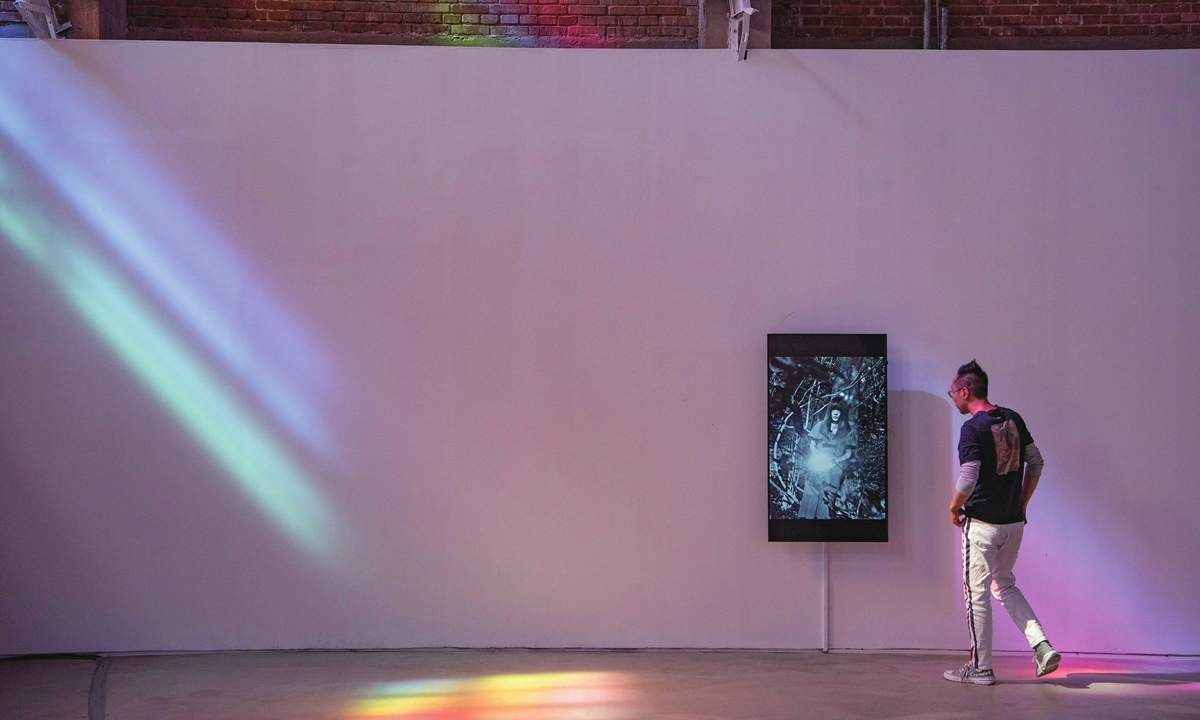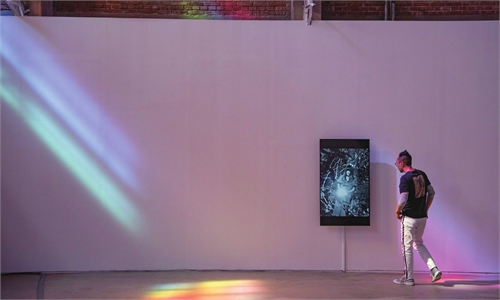
A spectator views a NFT art work at a NFT art exhibition held in Beijing on May 9, 2021. Photo: cnsphoto
The closest most people get to owning a famous artwork is to buy a cheap poster from a gallery, but art dealers are determined to harness technology to draw in new collectors.
Anaida Schneider, a former banker based in Switzerland, is among those promoting new ownership schemes, for a small fee, investors can buy a digital chunk of a painting and share in the profits when it sells.
"Not everyone has $1 million to invest," she told AFP.
"So I came up with the idea to split, to make like a mutual fund but on the blockchain."
Each buyer gets an NFT, the unique digital tokens created and stored on the blockchain, the computer code that underpins cryptocurrencies.
Although cryptoassets have been routed in 2022 with plunging values, collapsing projects and widening scandals, the NFT art sector has weathered the storm better than other crypto sectors.
NFT artworks accounted for some $2.8 billion in sales in 2021 and the rate has declined only slightly in the first half of 2022, according to analyst firm NonFungible.
Collectors and artists are among the most eager experimenters with the technology, even if it means owning only a digital copy of a painting.
A fifth of 300 collectors surveyed by the website Art+Tech Report said they had already engaged in so-called fractional ownership.
Schneider owns the paintings she sells, thus avoiding legal complications, but attempts to offer novel digital ownership schemes for publicly owned works is proving trickier.
Thirteen Italian museums recently signed deals with Cinello, a firm that sells limited edition digital reproductions, to offer ownership of digital replicas of masterworks.
The buyer gets a unique, high-resolution digital copy to project onto a screen and a certificate from the museum, which gets half the proceeds.
The company held a splashy London show in February displaying digitized works by Renaissance masters including Raphael, Leonardo and Caravaggio. It has since sold a handful of them.
But the Italian culture ministry was reportedly irked that a replica of Michelangelo's Doni Tondo sold for around $238,000 but Florence's Uffizi gallery got less than a third of the proceeds.
A spokesman for the ministry was quoted in several outlets in July as saying the issue was "complex and unregulated" and asked museums not to sign any new contracts around NFTs.
Cinello boss Francesco Losi was not pleased with the characterization, telling AFP: "We don't sell NFTs."
Buyers can ask for an NFT to go with their image, but the firm said they had their own patented system to secure ownership, which they call DAW.
AFP


